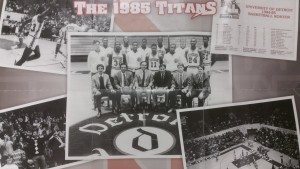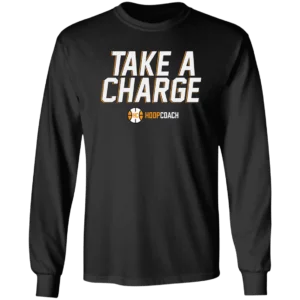 Like many of you, over the years I had many assistant coaches and like anything else, they have run the gamut- from the great-the late Charlie Coles, who had a stellar career as a Head Coach at Central Michigan and Miami of Ohio-all the way down to a coach I had to dismiss after only a week.
Like many of you, over the years I had many assistant coaches and like anything else, they have run the gamut- from the great-the late Charlie Coles, who had a stellar career as a Head Coach at Central Michigan and Miami of Ohio-all the way down to a coach I had to dismiss after only a week.
Also, like many of you, I assigned responsibilities commensurate with each individual’s experience and expertise. The goal was always to make sure that all assistants eventually performed all the duties necessary to one day be a head coach themselves.
At the HS level, I was fortunate to have several seasoned veterans as “right-hand men”, who had previously been successful head coaches in their own rights. I also had several excellent ex-college players who knew the game very well and just had a natural flare for teaching and communicating with players. I also had a number of teachers who had backgrounds in athletics and had an interest in coaching.
At the college level, besides Coach Coles, I was again fortunate to have a number of outstanding assistants, and I would be remiss if I didn’t mention at least two of them- Milton Barnes, who became the head coach at Eastern Michigan-among other notable stops-and Derrick McDowell, who was on staffs at Central Michigan and Eastern Michigan and who, most recently coached the Detroit Western International Cowboys to the Michigan Class A State Championship this past March.
Obviously, the types of duties and assignments varied greatly at the two levels. At the high-school level all positions were part-time and no one derived their main income from doing so. Most of these assistants were interested in the “game” and in performing actual coaching duties in practices and games.
On the other hand, most of the assistants at the college level were full time-even if their job descriptions said Part-Time. Their incomes were pretty much derived from coaching and related duties- camps, clinics, speaking engagements etc. The duties at this level tend to be more varied and consequently some assistants actually had more “non-coaching” duties than not.
Generally speaking, at the college level, I wanted more help with recruiting, academic monitoring and office administration than I did with coaching. Certainly, my assistants were all involved to some degree in practice planning, actual practice, game-planning and post game analysis. Rightfully so, I leaned on my “star” assistants for more “X and O” input than others. But, in retrospect, no matter what my other assistants’ non-basketball duties were, I easily could have better structured a format in which they could have had more meaningful input.
So, here’s what I would do now: (This list might be more applicable to a college situation but decide for yourself).
- Prior to the season, each assistant would research baseline inbounds plays and recommend five to ten to me for implementation. These would need to be varied; against man, against zone, little time on game or shot clock, need to score 2 or 3, play to get ball in safely and any other type of situation. I would then implement the best of the best but I would make sure that each assistant got at least one.
- Same process- five recommendations for sideline inbounds plays-some to score and some to safely inbound the ball.
- Same process- five recommendations for baseline sets and actions when our opponent is attempting to deny our inbounds pass in full court situations.
- Same process- five recommendations for set plays to run after timeouts.
- Each assistant would research “special situations” and make two lists of ten each- one for defense; one for offense. I would then pool everyone’s situations for discussion in preparation for the season.
- If there is only one assistant, very often the head man coaches the focus in 5 on 5 (offense or defense) and the assistant coaches the other. One aside- I had Coach Coles act officially as Defensive Coordinator and that worked really well. If there are extra assistants, I would periodically switch them from offense to defense and back as “assistants” to the two “coordinators” and I would give them specific assignments within the framework on a rotating basis (offensive rebounding, helping the helper, etc.).
- I would do more station work so that even a third or fourth assistant would have experience being the “voice” and leading his own drill.
- In typical drill work where we might be broken into perimeter players and post players, I would replicate the thinking in #6 above.
As I now have involved my assistants either in the planning or execution of everything that we do, they should be more invested in my program and theoretically more engaged and motivated.



Good article.
Hey coach I am an assistant coach at a D3 school. I would of loved to be your asst. My coach just wants an asst to be a body at practice and never takes suggestions on game planning. But my love for the kids and the game never stops. I just wanted to know how can I still become a better coach if I don’t get the support from my head coach.
Coach, In the short term, keep working with the players on all the responsibilities that you do have. Have you spoken to the Head Coach about your thoughts? If you can approach him, that would be the best immediate solution.
Otherwise, you may have to look for another situation, if you don’t think you can grow in your current job.
What if the head coach is intimidated by the strong assistant so to not expose his inability to lead he minimizes the role of the strong assistant and give more duties to the “yes man” assistants.
Coach, You bring up a valid point and a problem for many assistants who aren’t utilized for any number of reasons. Obviously, if you can have an open discussion on this topic with the Head Coach, this is the best option. Most often head coaches who don’t delegate and aren’t open to idea exchanges also aren’t open to the type of discussion I mentioned. In the interim, I would suggest finding niches where you can contribute within the Head Coach’s staff format. Most often these niches are related to direct communication with players. Generally, if a head coach doesn’t communicate well with assistants, it’s very likely that he or or she doesn’t communicate well with players either. In the long run, if your role can’t expand perhaps looking for another position might be the answer.
If I had enough coaches, I would have a coach responsible for Rebounding
yeah it would be nice to have a staff like some of these high major coaches!